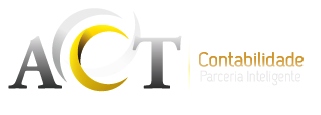Content
Get productivity, intentional living and self-care tips so you can go from “busy” to “present” and show up as your best self in life and business in this weekly newsletter. Sign up to get productivity, intentional living and self-care tips so you can tap into a slower life and go from constantly doing to peacefully being. With the start of a new year, many people intentionally choose to be a better version of themselves. Whether they make a resolution to lose weight, read more, or be a better friend, self-improvement is a hot topic this time of year.
- Enrich your spirit by connecting with nature, meditating, or taking a yoga class.
- To others, it could mean more than just avoiding using recreational or prescription drugs or drinking alcohol, but achieving good mental health.
- Other indirect health problems caused by addiction are HIV/AIDS, hepatitis, and other problems caused by sharing needles and sexually transmitted infections caused by risky sex under the influence of substances.
Another tool that’s available for recovering addicts is aftercare programs. At Lighthouse Recovery Institute, we believe in integrating aftercare recovery programs to assist in long-term sobriety beyond our comprehensive treatment plans. https://www.excel-medical.com/5-tips-to-consider-when-choosing-a-sober-living-house/ Through these programs, we include life skills classes, relapse prevention techniques, and other treatments to help those in sobriety find joy and purpose in life. A sober life is always better than one spent fighting with addiction.
‘Sober Curious’: What Does It Mean to Explore Life Without Alcohol?
This time you and your group are going to be taken through the Big Book thoroughly as Joe and Charlie, Joe H., and Don P., did in the days of the old. This workbook and workshop format helps to systematically lead you and your group through all 12 steps thoroughly in trying to create such an experience within you that you feel a spiritual shift occur in your being. This much more significant divide could potentially suggest that Americans are trending toward drinking less than they were prior to the pandemic. You’re not going to look like a jacked fitness model after a month of eating well and going to the gym. And you’re not going to be transformed into a happy, mentally fit superhuman just because you stopped drinking alcohol for a few months.

If people press that response, I’ll either stare at them and hold an uncomfortable silence (this is enjoyable at some point), or just change the subject. There are exceptions to this, like if someone alludes to their own struggle with alcohol, and then I might offer up a bit more of my personal experience. So if all of your friends drink alongside you, then there’s no issue, right? Well, there’s a concept in psychology known as “confirmation bias,” and it means that we often look for evidence to support something that we already believe to be true. While making the decision to be sober was the best thing I’ve ever done, it’s also one of the hardest.
Your relationships get stronger.
Enrich your spirit by connecting with nature, meditating, or taking a yoga class. When you suffer from addiction, you become selfish, toxic, and difficult to maintain a relationship with. As a result, you’ve likely broken and lost relationships that you’ve had in the past with family members and friends while suffering from addiction. In this guide, we’re going to be sharing 70 ways you can practice self-care, treat yourself and show yourself some love when you’re not drinking. From hangover free mornings to enjoying a night out without alcohol, these ideas are bound to inspire you to think about your drinking habits and put yourself first, no matter the setting. In addition to living a better, more fulfilling life, sobriety can also extend your years due to increased health and wellness.
What does sober habits mean?
: abstaining from drinking alcohol or taking intoxicating drugs : refraining from the use of addictive substances (see substance sense 3c)
At Sober Life, our mental health professionals, medical team, and community support means you’re covered at every level. But deeper than that, we so often have shared experiences of those adverse childhoods experiences – from divorce, to abuse and neglect, to maybe a parent who suffered from substance use or other mental health problems. In the Buddhist tradition, “dharma” means “truth” or “the way things are”. This audiobook describes a way to free ourselves from the suffering of addiction using Buddhist practices and principles. Our audiobook is based on the idea that every one of us is our own guide in recovery from addiction, with the help and understanding of our wise friends and sangha (community).
Self-care ideas for a sober weekend
The benefits of being sober include real relationships and experiences that you might otherwise miss out on, along with many other good reasons to be sober. One big reason people feel so afraid of sobriety is because of what they see in the media, pop culture and even from people they know on social media. There’s the sense that if you’re not using drugs or alcohol, somehow life is boring or uninteresting. There’s the misconception that if you’re sober, you aren’t fun, you won’t be able to enjoy your life to the fullest and you’ll have trouble forming relationships. Acknowledging and celebrating the hard work of recovery is helpful for keeping you motivated and reminding you why you took this brave step toward sobriety in the first place. Just be sure that your rewards don’t involve drugs or alcohol.
- We believe trust, meaningful connections, and kindness are the essentials to beginning a journey in recovery.
- This means you’ll have an easier time functioning at work, carrying out your daily routine, reading a book, and even just having deeper thoughts and ideas that add value to your life.
